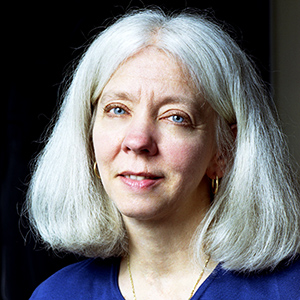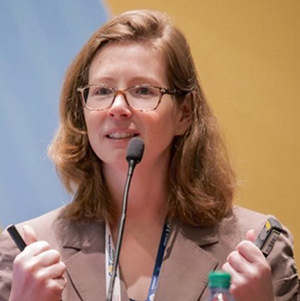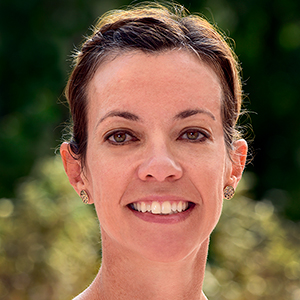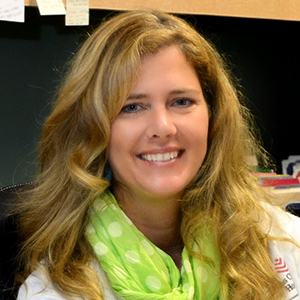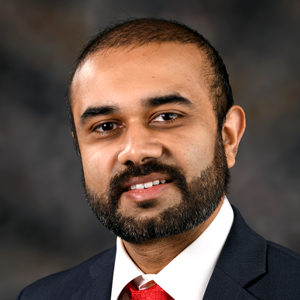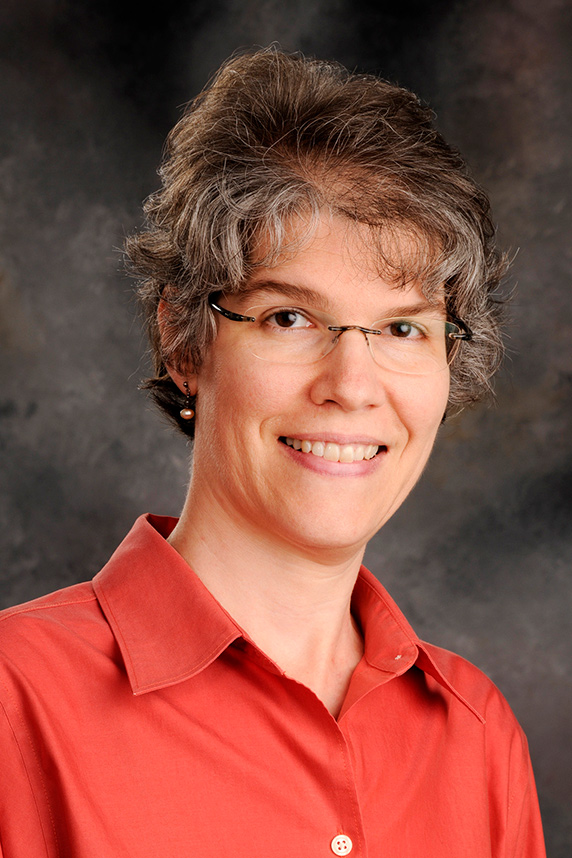 Howdeshell’s current efforts include work with an NIEHS team to integrate published findings in the CLARITY-BPA program, including studies on reproductive development. (Photo courtesy of Steve McCaw)
Howdeshell’s current efforts include work with an NIEHS team to integrate published findings in the CLARITY-BPA program, including studies on reproductive development. (Photo courtesy of Steve McCaw)Kembra Howdeshell, Ph.D., from the National Toxicology Program (NTP), learned on Feb. 12 that she is this year’s recipient of the F. Clarke Fraser New Investigator Award from the Teratology Society. “This award is conveyed to you in recognition of the research and stewardship you have contributed to the field of birth defects research and the Teratology Society,” wrote the society’s Awards Committee Chair Nicole Kleinstreuer, Ph.D., also from NTP. Kleinstreuer received the same award two years ago.
Howdeshell works in the NTP Office of Health Assessment and Translation (OHAT), where she uses her background in reproductive and developmental toxicology to evaluate published research for findings that link environmental exposures or other substances of interest to NTP with harmful health effects in humans.
“I have a special interest in the effects of endocrine-disrupting chemicals on offspring, following exposure during pregnancy,” Howdeshell said. “Several of my projects at the NTP have involved agents that are known to cause birth defects. The newest of those is the just-released final report on risks to chemotherapy workers, which may include miscarriage.” (See sidebar.)
“Throughout her career, and most recently via her role in OHAT, Kembra has made major contributions to the field of endocrine disruption research and led multi-stakeholder efforts via collaborative projects, scientific symposia, and journal special issues,” said Kleinstreuer. “Her outstanding contributions to developmental and reproductive toxicology, in combination with her commitment to mentorship, made her a perfect choice for this award.”
Mentoring and service
In addition to a scientist’s own research, the Teratology Society award recognizes contributions to the society, as well as the ability to serve as a role model for early-career researchers. A society member since 2013, Howdeshell has organized and co-chaired several symposia, including one on evaluating reproductive developmental effects of botanical supplements. Her other service includes committee work and representing the society to other organizations.
Mentorship is nothing new to Howdeshell. She mentored an undergraduate student in the NIEHS Scholars Connect Program in 2015-2016 and continues to judge their poster presentation competitions as her schedule permits.
Beyond the institute, Howdeshell has volunteered as a peer reviewer for the Sigma Xi Grants-in-Aid-of-Research program, which funds small research grants for undergraduate and graduate students. She regularly serves as a host mentor in the Society of Toxicology’s undergraduate education programs at the annual meetings. “I also enjoy interacting with science students through my husband’s work in the Guilford College Physics Department,” she said.
As the F. Clarke Fraser New Investigator, Howdeshell will present a talk at the society’s annual meeting in San Diego. These presentations are geared toward inspiring students and others around career paths in birth defects research. “Based upon your extensive background and contributions to the field of teratology, we anticipate that you will be able to put together a wonderful presentation,” Kleinstreuer wrote.





